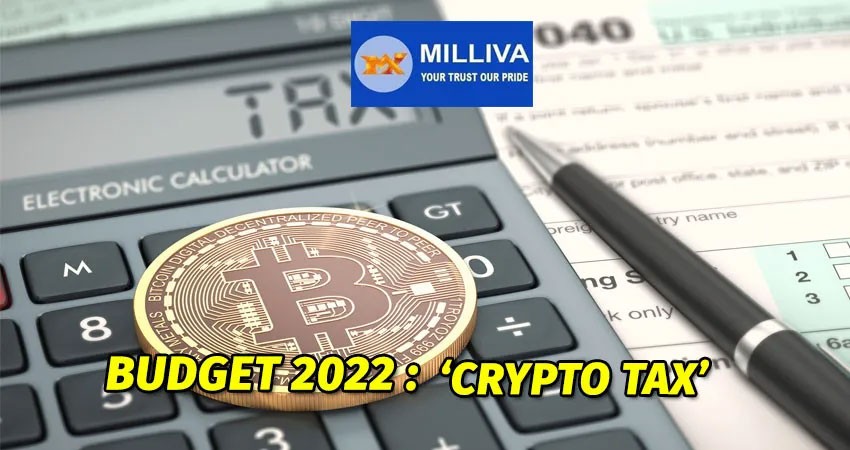India Finally Warms to Crypto With Tax, Digital Currency

![]()
Crypto With Tax : The Finance Minister, Nirmala Sitharaman, delivers the union budget on Tuesday. Confirms that the income from virtual digital assets tax at a single rate of 30%. There will be no deductions or set-offs against other income. It recommends that gifts of virtual digital assets taxed in the recipient’s hands.
Tracking All Transactions
For tracking all the transactions, the government has also suggested a 1% tax deducted at source (TDS). Experts consider this as a brilliant move. That allow the government to track every transaction.
Since market participants required to deduct taxes and report the transaction to the government. The industry had been requesting clarification on bitcoin taxation for a long time.

Updates of Crypto 2022-2023
The government has recommended that the RBI will create Digital Rupees in the 2022-23 fiscal year using blockchain and other technologies. The government suggests the digital money will also result in a more efficient and cost-effective currency management system.
In simple terms, the taxation on virtual digital assets refers to cryptocurrencies, DeFi (decentralized finance), and non-fungible tokens (NFTs). At first glance, this excludes digital gold, central bank digital currency (CBDC), or any other traditional digital assets. And so appears geared only at taxing cryptocurrencies.
Crypto Tax Rule: Losses cannot offset:
Losses cannot adjust within a single head. They cannot offset against income from another VDA. Gupta gave an example to illustrate this point: If you have a loss from the transfer of bitcoin and a profit from the transfer of non-fiat currencies, you cannot deduct the loss from the transfer of bitcoin from the profit on the transfer of NFTs. Profits from NFT transfers are subject to a flat rate tax of 30%.
Additionally, losses from cryptocurrency transfers cannot be offset by earnings under any other heading. This means that losses from cryptocurrency cannot be offset by gains from the sale of stocks, mutual funds, assets like real estate, etc.
Crypto Tax Rule: No carryover permitted:
The taxpayer prohibited from carrying forward bitcoin losses under the crypto tax rules.
According to Gupta, a loss from the transfer of cryptocurrency during one fiscal year cannot carried over to the following year to offset gains from subsequent years.
Date for reporting cryptocurrency taxes: When is the 30% cryptocurrency tax due?
From Assessment Year 2023–2024, the taxpayer required to pay a 30% tax on cryptocurrencies and other VDAs. Your whole VDA transfer revenue for the upcoming fiscal year (2022–2023) will therefore be subject to a 30% tax rate.
Crypto investors, according to Gupta, should determine their advance tax burden after taking into account the tax on revenue from the transfer of cryptocurrencies and NFTs and pay the advance tax instalments in accordance with that calculation.
visit us : www.milliva.com






What is Trade Credit? From a Foreign Exchange Point
02nd Jul 2022[…] will be withholding tax on the interest paid to a resident outside of India (the supplier in the case of a supplier’s […]